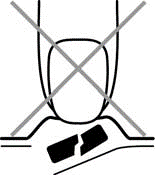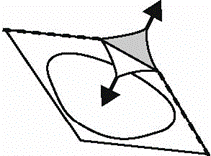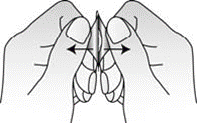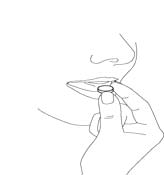
Auromirta Oro
Ask a doctor about a prescription for Auromirta Oro

How to use Auromirta Oro
Leaflet accompanying the packaging: patient information
AuroMirta ORO, 15 mg, orally disintegrating tablets
AuroMirta ORO, 30 mg, orally disintegrating tablets
AuroMirta ORO, 45 mg, orally disintegrating tablets
Mirtazapine
You should carefully read the contents of the leaflet before using the medicine, as it contains important information for the patient.
- You should keep this leaflet, so that you can read it again if you need to.
- In case of any doubts, you should consult a doctor or pharmacist.
- This medicine has been prescribed specifically for you. Do not pass it on to others. The medicine may harm another person, even if their symptoms are the same.
- If the patient experiences any side effects, including any side effects not listed in this leaflet, they should tell their doctor or pharmacist. See section 4.
Table of contents of the leaflet:
- 1. What is AuroMirta ORO and what is it used for
- 2. Important information before taking AuroMirta ORO
- 3. How to take AuroMirta ORO
- 4. Possible side effects
- 5. How to store AuroMirta ORO
- 6. Contents of the packaging and other information
1. What is AuroMirta ORO and what is it used for
AuroMirta ORO is one of a group of medicines called antidepressants.
AuroMirta ORO is used to treat depression in adults.
It usually takes between 1 to 2 weeks before you start to feel better when taking AuroMirta ORO.
After 2 to 4 weeks, you may start to feel better. If you do not feel better or if you feel worse after 2-4 weeks, you should consult your doctor immediately. More information can be found in section 3 "When can you expect to feel better".
2. Important information before taking AuroMirta ORO
You should not take AuroMirta ORO - OR - consult your doctor before taking AuroMirta ORO:
- if you are allergic to mirtazapine or any of the other ingredients of this medicine (listed in section 6). If so, you should immediately talk to your doctor before taking AuroMirta ORO.
- if you are taking or have taken (within the last two weeks) medicines called monoamine oxidase inhibitors (MAOIs).
- if you have ever had a severe skin rash or blistering of the skin, peeling of the skin, or mouth sores after taking AuroMirta ORO or other medicines.
You should exercise special caution when taking AuroMirta ORO:
Severe skin reactions, including Stevens-Johnson syndrome (SJS), toxic epidermal necrolysis (TEN), and drug reaction with eosinophilia and systemic symptoms (DRESS) have been reported with the use of AuroMirta ORO. You should stop taking the medicine and seek medical attention immediately if you experience any of the symptoms listed in section 4.
- 4.
If you have ever had a severe skin reaction, you should not restart treatment with AuroMirta ORO.
Warnings and precautions
You should discuss this with your doctor or pharmacist before starting to take AuroMirta ORO.
Children and adolescents
Mirtazapine is not usually given to children and adolescents under 18 years of age, as its safety and effectiveness have not been established in this age group. Additionally, in children under 18 years of age, an increased risk of side effects, such as suicidal attempts, suicidal thoughts, and hostility (mainly aggression, oppositional behavior, and anger), has been observed when taking this type of medicine. Nevertheless, your doctor may prescribe AuroMirta ORO to patients under 18 years of age if they consider it will be beneficial. If your doctor has prescribed AuroMirta ORO to a patient under 18 years of age and the patient wants to discuss this, they should consult their doctor. You should inform your doctor if any of the above symptoms occur or worsen while the patient under 18 years of age is taking AuroMirta ORO. Furthermore, the long-term safety of AuroMirta ORO concerning growth, maturation, and cognitive and behavioral development in this age group has not yet been established. Additionally, in this age group, significant weight gain has been more frequently observed during treatment with AuroMirta ORO compared to adults.
Suicidal thoughts and worsening of depression
If you are depressed, you may sometimes have thoughts of harming or killing yourself. These thoughts may be increased when you first start taking antidepressants, as these medicines take time to work, usually about two weeks, and sometimes longer.
You may be more likely to have these thoughts:
- if you have had thoughts of killing yourself or harming yourself in the past.
- if you are a young adult. Information from clinical trials has shown an increased risk of suicidal behavior in adults aged less than 25 years with mental disorders who were treated with an antidepressant. If you experience any thoughts of killing yourself or harming yourself at any time, you should contact your doctor or go to the hospital.
It may be helpful to tell a relative or close friend that you are depressed and ask them to read this leaflet. You can also ask them to tell you if they think your depression is getting worse, or if they are worried about changes in your behavior.
You should also exercise special caution when taking AuroMirta ORO:
- if you have or have ever had any of the following conditions: Before taking AuroMirta ORO, you should tell your doctor about the following conditions, if you have not already done so.
- seizures (epilepsy). If seizures occur or become more frequent, you should stop taking AuroMirta ORO and contact your doctor immediately;
- liver disease, including jaundice. If jaundice occurs, you should stop taking AuroMirta ORO and contact your doctor immediately;
- kidney disease;
- heart disease or low blood pressure;
- schizophrenia. If psychotic symptoms, such as paranoid thoughts, become more frequent or severe, you should contact your doctor immediately;
- manic depression (alternating periods of excitement/euphoria and depressed mood). If you feel excessively excited or over-stimulated, you should stop taking AuroMirta ORO and contact your doctor immediately;
- diabetes (your insulin or other antidiabetic medication doses may need to be adjusted);
- eye diseases, such as increased pressure in the eye (glaucoma);
- difficulty urinating, which may be caused by an enlarged prostate;
- certain types of heart disease that may affect your heart rhythm, recent heart attack, heart failure, or taking certain medicines that may affect your heart rhythm.
- if you experience symptoms of infection, such as unexplained high fever, sore throat, and mouth sores. You should stop taking AuroMirta ORO and consult your doctor for a blood test. In rare cases, these symptoms may be signs of blood cell production disorders in the bone marrow. Although these symptoms are rare, they usually occur within 4-6 weeks of treatment.
- if you are elderly. You may be more sensitive to the side effects of antidepressant medicines.
AuroMirta ORO with other medicines
You should tell your doctor or pharmacist about all the medicines you are taking now or have taken recently, and about any medicines you plan to take.
You should not take AuroMirta ORO in combination with:
- monoamine oxidase inhibitors (MAOIs). You should not take AuroMirta ORO for two weeks after stopping MAOIs. If you stop taking AuroMirta ORO, you should not take MAOIs for the next two weeks. Examples of MAOIs are moclobemide, tranylcypromine (both are antidepressants), and selegiline (used in Parkinson's disease).
You should exercise caution when taking AuroMirta ORO in combination with:
- antidepressant medicines, such as SSRIs, venlafaxine, and L-tryptophan or triptans (used to treat migraines), tramadol (a painkiller), linezolid (an antibiotic), lithium (used to treat certain mental disorders), methylene blue (used to treat high levels of methemoglobin in the blood), and St. John's Wort (Hypericum perforatum) (a herbal remedy for depression). In very rare cases, AuroMirta ORO alone or in combination with these medicines may lead to a condition called serotonin syndrome. Some symptoms of this syndrome are: unexplained fever, sweating, rapid heartbeat, diarrhea, (uncontrolled) muscle contractions, shivering, over-reactivity, restlessness, mood changes, and loss of consciousness. If you experience a combination of these symptoms, you should contact your doctor immediately.
- nefazodone, an antidepressant. It may increase the amount of AuroMirta ORO in your blood. You should inform your doctor if you are taking this medicine. Your doctor may need to reduce your dose of AuroMirta ORO or, if you stop taking nefazodone, increase your dose of AuroMirta ORO again.
- anxiety or insomnia medicines, such as benzodiazepines.
- medicines used to treat schizophrenia, such as olanzapine.
- allergy medicines, such as cetirizine.
- strong painkillers, such as morphine. In combination with these medicines, AuroMirta ORO may increase the sedation caused by these medicines.
- infection medicines; medicines used to treat bacterial infections (such as erythromycin), fungal infections (such as ketoconazole), and medicines used to treat HIV/AIDS (such as protease inhibitors) and medicines used to treat stomach ulcers (such as cimetidine).
In combination with AuroMirta ORO, these medicines may increase the level of AuroMirta ORO in your blood. You should inform your doctor if you are taking these medicines. Your doctor may need to reduce your dose of AuroMirta ORO or, after stopping these medicines, increase your dose of AuroMirta ORO again.

- antiepileptic medicines, such as carbamazepine and phenytoin.
- antituberculosis medicines, such as rifampicin. In combination with AuroMirta ORO, these medicines may decrease the level of AuroMirta ORO in your blood. You should inform your doctor if you are taking these medicines. Your doctor may need to increase your dose of AuroMirta ORO or, after stopping these medicines, decrease your dose of AuroMirta ORO again.
- blood-thinning medicines, such as warfarin. AuroMirta ORO may increase the effect of warfarin. You should inform your doctor if you are taking this medicine. If taken together, your doctor should closely monitor your blood parameters.
- medicines that may affect your heart rhythm, such as certain antibiotics and certain antipsychotic medicines.
AuroMirta ORO with food and alcohol
You may feel drowsy if you drink alcohol while taking AuroMirta ORO.
You should not drink alcohol.
AuroMirta ORO can be taken with or without food.
Pregnancy and breastfeeding
If you are pregnant or breastfeeding, think you may be pregnant, or are planning to have a baby, you should ask your doctor or pharmacist for advice before taking this medicine.
Limited experience with AuroMirta ORO in pregnant women does not indicate an increased risk. However, caution should be exercised when taking during pregnancy.
If AuroMirta ORO is taken until delivery or shortly before, the baby should be monitored for possible side effects.
Taking AuroMirta ORO during pregnancy, like other similar medicines (SSRIs), may increase the risk of a serious condition in newborns called persistent pulmonary hypertension of the newborn (PPHN), causing the baby to breathe faster and appear blue. These symptoms usually appear within the first 24 hours after birth. In such a case, you should contact the midwife and/or doctor immediately.
Driving and using machines
Mirtazapine may affect your concentration or attention. Before driving or using machines, you should make sure it does not affect these abilities. If your doctor has prescribed AuroMirta ORO for a patient under 18 years of age, you should make sure, before driving (e.g., a bicycle), that the medicine does not affect concentration and attention on the road.
AuroMirta ORO contains aspartame, a source of phenylalanine. It may be harmful to people with phenylketonuria.This is a rare genetic disorder in which phenylalanine accumulates in the body due to its improper elimination.
3. How to take AuroMirta ORO
This medicine should always be taken exactly as your doctor has instructed. In case of doubt, you should consult your doctor or pharmacist.
Recommended dosage
The usual starting dose is 15 mg or 30 mg once a day. Your doctor may recommend increasing the dose after a few days to the amount that is best for you (from 15 mg to 45 mg once a day). The dose is usually the same for all age groups. However, if you are elderly or have kidney or liver disease, your doctor may adjust the dose.
When to take AuroMirta ORO
AuroMirta ORO should be taken once a day, at the same time every day.
It is best to take AuroMirta ORO as a single dose before going to bed. However, your doctor may recommend dividing the dose of AuroMirta ORO - once in the morning and once in the evening before going to bed.
The larger dose should be taken before going to bed.
Orally disintegrating tablets should be taken as follows:
Tablets should be taken orally.
1. Do not crush the orally disintegrating tablet
To avoid crushing the orally disintegrating tablet, do not press on the blister (Figure A).

Figure A
2. Tear off one tablet blister
Each blister contains six pockets, which are separated by perforations. You should tear off one pocket with a tablet along the broken lines (fig. 1).

Fig. 1
3. Open the packaging
Carefully remove the foil covering, starting from the corner, as indicated by the arrow (fig. 2 and 3)

Fig. 2

Fig. 3
4. Remove the orally disintegrating tablet
Remove the orally disintegrating tablet with dry hands and place it on your tongue (fig. 4).

Fig. 4
The tablet dissolves quickly and can be swallowed without water.
When can you expect to feel better?
AuroMirta ORO usually starts to work within 1 to 2 weeks, and after 2 to 4 weeks, you may start to feel better. It is essential to talk to your doctor about the effect of AuroMirta ORO during the first few weeks of treatment:
2-4 weeks after starting to take AuroMirta ORO, you should talk to your doctor about how the medicine is affecting you.
If you do not feel better, your doctor may prescribe a higher dose. In such a case, you should talk to your doctor again after another 2-4 weeks. You usually need to take AuroMirta ORO for 4 to 6 months, until your symptoms of depression have disappeared.
Taking a higher dose of AuroMirta ORO than recommended.
If you or someone else has taken too much AuroMirta ORO, you should contact your doctor immediately. The most likely symptoms of an overdose of AuroMirta ORO (without other medicines or alcohol) are drowsiness, disorientation, and rapid heartbeat. Symptoms of possible overdose may include changes in heart rate (fast, irregular heartbeat) and/or fainting, which can be symptoms of a life-threatening condition called torsades de pointes.
Missing a dose of AuroMirta ORO
If you are supposed to take a dose once a day
- You should not take a double dose to make up for a missed dose. You should take the next dose at the usual time.
If you are supposed to take a dose twice a day
- If you have missed the morning dose, you should take it together with the evening dose.
- If you have missed the evening dose, you should not take it with the next morning dose; you should miss it and continue with your normal doses in the morning and evening.
- If you have missed both doses, you should not take the missed doses. You should miss both doses and continue with your normal schedule the next day, with doses in the morning and evening.
Stopping treatment with AuroMirta ORO
You should stop taking AuroMirta ORO after consulting your doctor.
If you stop taking the medicine too early, your depression may return. When you feel better, you should talk to your doctor. Your doctor will decide when you can stop treatment.
You should not stop taking AuroMirta ORO abruptly, even if your depression has lifted. If you stop taking AuroMirta ORO abruptly, you may experience nausea, dizziness, restlessness, or anxiety, and headaches.
These symptoms can be avoided by gradually stopping the treatment. Your doctor will tell you how to gradually reduce the dose.
If you have any further doubts about taking this medicine, you should consult your doctor or pharmacist.
4. Possible side effects
Like all medicines, AuroMirta ORO can cause side effects, although not everybody gets them.
In case of any of the following serious side effects, you should stop taking AuroMirta ORO and consult your doctor immediately:
Uncommon(may affect up to 1 in 100 people):
- feeling excited or emotionally unstable (mania).
Rare(may affect up to 1 in 1,000 people):
- yellowing of the eyes or skin; this may indicate liver problems (jaundice).
Unknown(frequency cannot be estimated from the available data):
- infection symptoms, such as unexplained high fever, sore throat, and mouth sores (agranulocytosis). In rare cases, mirtazapine may cause blood cell production disorders (bone marrow suppression). Some people become less resistant to infections because mirtazapine may cause a temporary lack of white blood cells (granulocytopenia). In rare cases, mirtazapine may also cause a lack of red and white blood cells, as well as platelets (aplastic anemia), a lack of platelets (thrombocytopenia), or an increased number of white blood cells (eosinophilia);
- seizures (convulsions);
- a combination of symptoms, such as unexplained fever, sweating, rapid heartbeat, diarrhea, (uncontrolled) muscle contractions, shivering, over-reactivity, restlessness, mood changes, and loss of consciousness. In very rare cases, these may be symptoms of serotonin syndrome;
- thoughts of self-harm or suicide;
- red spots on the torso in a target shape or round, often with blisters in the center, peeling of the skin, mouth sores, and ulcers in the mouth, throat, nose, genitals, and eyes. The occurrence of such severe skin rashes may be preceded by fever and flu-like symptoms (Stevens-Johnson syndrome, toxic epidermal necrolysis);
- widespread rash, high body temperature, and swollen lymph nodes (DRESS or drug hypersensitivity syndrome).
Other possible side effects of mirtazapine are:
Very common(may affect more than 1 in 10 people):
- increased appetite and weight gain;
- feeling drowsy or sedated;
- headache;
- dry mouth.
Common(may affect up to 1 in 10 people):
- lethargy;
- dizziness;
- tremors;
- nausea;
- diarrhea;
- vomiting;
- constipation;
- rash or pustular rash;
- joint pain (arthralgia) or muscle pain (myalgia);
- back pain;
- dizziness or fainting when standing up quickly (orthostatic hypotension);
- swelling (usually in the ankles or feet) due to fluid retention (edema);
- fatigue;
- vivid dreams;
- confusion;
- feeling restless;
- sleep problems;
- memory problems, which usually resolve after stopping treatment.
Uncommon(may affect up to 1 in 100 people):
- abnormal sensation on the skin, such as burning, tingling, or itching (paresthesia);
- restless legs;
- fainting;
- numbness in the mouth (oral hypoaesthesia);
- low blood pressure;
- nightmares;
- feeling over-stimulated;
- hallucinations;
- feeling the need to move.
Rare(may affect up to 1 in 1,000 people):
- muscle twitching or contractions (myoclonus);
- aggression;
- abdominal pain and nausea: this may indicate pancreatitis.
Unknown(frequency cannot be estimated from the available data):
- abnormal sensations in the mouth (oral paresthesia);
- swelling of the mouth;
- swelling all over the body (generalized edema);
- localized swelling;
- hyponatremia;
- inappropriate antidiuretic hormone secretion;
- severe skin reactions (blistering skin conditions, erythema multiforme);
- sleepwalking (somnambulism);
- speech disorders;
- increased creatine kinase levels in the blood;
- difficulty urinating (urinary retention);
- muscle pain, stiffness, and/or weakness, darkening or discoloration of urine (rhabdomyolysis).
Additional side effects in children and adolescents
In children under 18 years of age, the following side effects have been commonly observed in clinical trials: significant weight gain, itchy skin rash (hives), and increased triglyceride levels in the blood.
Reporting side effects
If you experience any side effects, including any side effects not listed in this leaflet, you should tell your doctor or pharmacist. Side effects can be reported directly to the Department of Drug Safety Monitoring, Office for Registration of Medicinal Products, Medical Devices, and Biocidal Products, Al. Jerozolimskie 181C, 02-222 Warsaw, tel.: +48 22 49 21 301, fax: +48 22 49 21 309, website: https://smz.ezdrowie.gov.pl
Side effects can also be reported to the marketing authorization holder.
By reporting side effects, you can help provide more information on the safety of this medicine.
5. How to store AuroMirta ORO
Keep out of the sight and reach of children.
Do not use this medicine after the expiry date stated on the packaging and blister after "Expiry date (EXP)". The expiry date refers to the last day of the month stated.
There are no special storage precautions for this medicine.
Medicines should not be disposed of via wastewater or household waste. You should ask your pharmacist how to dispose of medicines no longer required. This will help protect the environment.
6. Contents of the packaging and other information
What AuroMirta ORO contains
- Each orally disintegrating tablet contains 15 mg of mirtazapine. Each orally disintegrating tablet contains 30 mg of mirtazapine. Each orally disintegrating tablet contains 45 mg of mirtazapine.
- The other ingredients are: crospovidone (type B), mannitol, microcrystalline cellulose, aspartame, colloidal anhydrous silica, magnesium stearate, strawberry-guarana flavor (maltodextrin, propylene glycol, artificial flavorings, and acetic acid) and mint flavor (artificial flavorings, cornstarch).
What AuroMirta ORO looks like and contents of the pack
AuroMirta ORO, 15 mg, orally disintegrating tablets
White, round orally disintegrating tablets with "36" embossed on one side and "A" on the other side, and with a round edge embossed.
AuroMirta ORO, 30 mg, orally disintegrating tablets
White, round orally disintegrating tablets with "37" embossed on one side and "A" on the other side, and with a round edge embossed.
AuroMirta ORO, 45 mg, orally disintegrating tablets
White, round orally disintegrating tablets with "38" embossed on one side and "A" on the other side, and with a round edge embossed.
Singles-dose blisters of polyamide/Aluminum/PVC/Paper/Polyester/Aluminum, in a cardboard box.
Pack sizes:
15 mg:6 x 1 and 30 x 1 orally disintegrating tablets.
30 mg and 45 mg:30 x 1 orally disintegrating tablets.
Not all pack sizes may be marketed.
Marketing authorization holder and manufacturer
Marketing authorization holder:
Aurovitas Pharma Polska Sp. z o.o.
ul. Sokratesa 13D lokal 27
01-909 Warsaw
Manufacturer/Importer:
APL Swift Services (Malta) Ltd.
HF26, Hal Far Industrial Estate, Hal Far
Birzebbugia, BBG 3000
Malta
Generis Farmacêutica, S.A.
Rua João De Deus 19, Venda Nova
2700-487 Amadora
Portugal
This medicine is authorized in the Member States of the European Economic Area under the following names:
Czech Republic:
Mirtazapine Aurovitas
Malta:
Mirtazapine Aurobindo 15 mg/ 30 mg/ 45 mg orodispersible tablets
Poland:
AuroMirta ORO
Spain:
MIRTAZAPINA AUROVITAS 15 mg/ 30 mg/ 45 mg comprimidos bucodispersables
Portugal:
Mirtazapina Aurovitas
Date of last revision of the leaflet: 12/2021
- Country of registration
- Active substance
- Prescription requiredYes
- Manufacturer
- ImporterAPL Swift Services (Malta) Ltd. Generis Farmacêutica, S.A.
- This information is for reference only and does not constitute medical advice. Always consult a licensed doctor before taking any medication. Oladoctor is not responsible for medical decisions based on this content.
- Alternatives to Auromirta OroDosage form: Tablets, 15 mgActive substance: mirtazapinePrescription requiredDosage form: Tablets, 45 mgActive substance: mirtazapinePrescription requiredDosage form: Tablets, 15 mgActive substance: mirtazapinePrescription required
Alternatives to Auromirta Oro in other countries
The best alternatives with the same active ingredient and therapeutic effect.
Alternative to Auromirta Oro in Spain
Alternative to Auromirta Oro in Ukraine
Online doctors for Auromirta Oro
Discuss dosage, side effects, interactions, contraindications, and prescription renewal for Auromirta Oro – subject to medical assessment and local rules.









